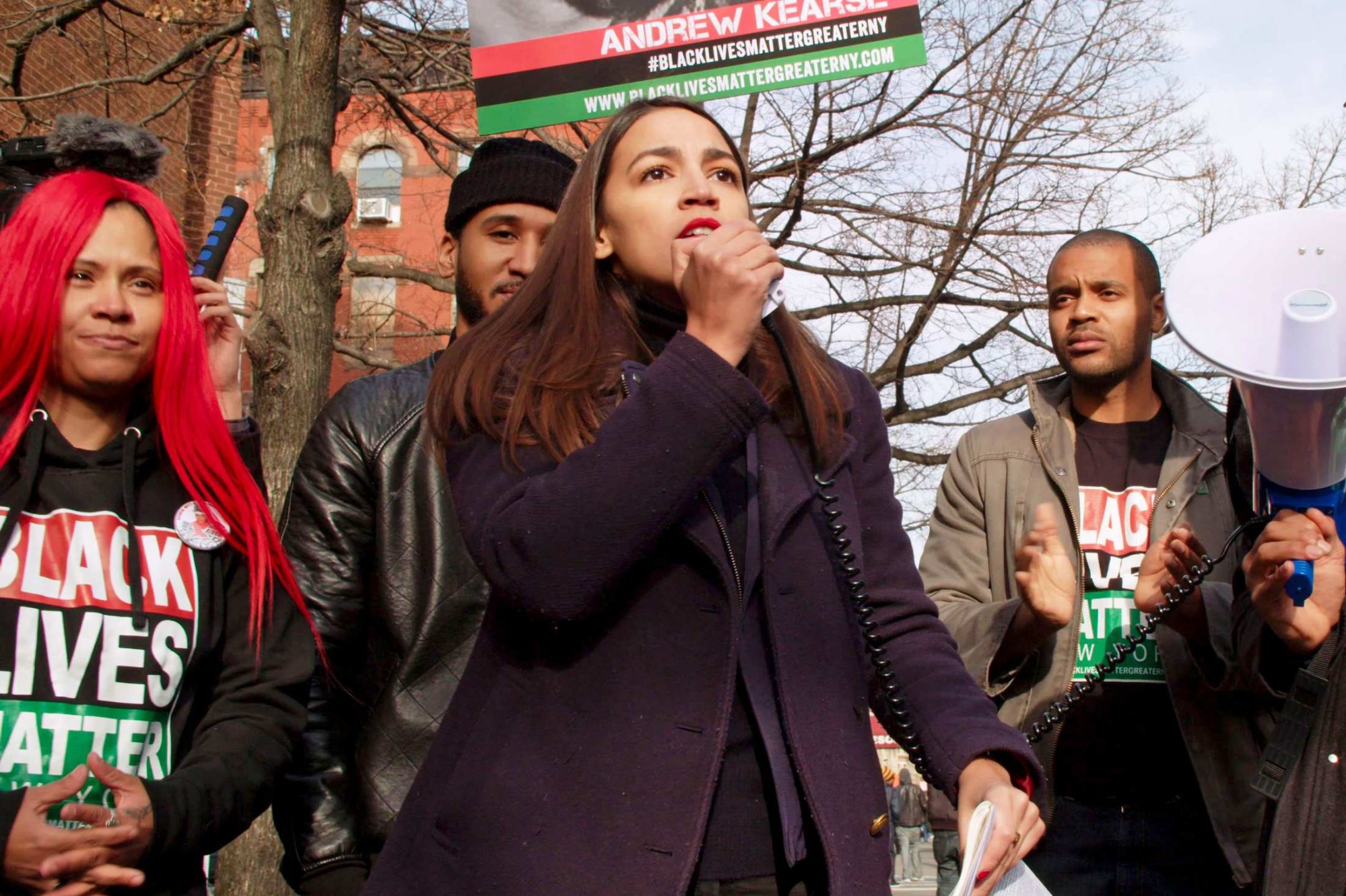One of the most powerful moments in Knock Down The House isn’t a victorious one. The Netflix documentary followed four women attempting to get selected as Democratic candidates for the 2018 midterms, and only one of them managed it.
As she discovers that she has lost, one of the remaining three candidates starts crying. It isn’t dignified crying; her sobs are physical, heavy and loud. She gave the race everything she had and it wasn’t enough. Maybe it wasn’t a surprise; when documentarian Rachel Lears started working on the project, she decided to focus on inspiring women drawn to politics for personal reasons, not simply on candidates who had a good chance of winning their primaries.
Rachel and her husband had even given proper thought to what the film would look like if Nevada’s Amy Vilela, Missouri’s Cori Bush, West Virginia’s Paula Jean Swearengin and New York’s very own Alexandria Ocasio-Cortez (AOC) all lost. It didn’t happen, of course; as everyone now knows, AOC went on to not just win the Democratic primaries, but become the youngest serving congresswoman in US history, at the age of 29.
Still, Knock The House Down is brilliant precisely because it does not focus on winning and losing. What it offers instead is a portrait of four normal women, two of them women of colour, campaigning for the things they believe in.
It is an hour and a half of emotion; of stress, joy, happy tears, heartbroken tears, anger, pride and everything else, and it is unashamed about focusing on the candidates’ humanity. Emotions aren’t usually popular in politics. They are something women have because they’re weak and hysterical; black women show because they’re over the top; working class women show because they’re thick and unrefined.
Identity politics have also become something to be attacked, for splitting society, turning it into an oppression contest, and being used as an excuse to shutdown inconvenient ideas. Politics, especially at a national level, must be pragmatic, cool-headed, and calculated to succeed, we’re told.
Well, we used to be told; the election of Donald Trump in the US and the Brexit vote in the United Kingdom heralded a new era, one of fury and bitterness, enabled by people seeing the change work in their favour. Communities have become divided, different sides no longer speak to one another, and the rise of far-right populism remains a pressing concern. It is also unclear how this all ends; the next presidential election is in just under 18 months, and a number of pundits are already predicting a second Trump win.
Watching Lears’ documentary doesn’t offer definite answers or concrete steps to take, but it offers a refreshing perspective.
For the women running, politics is something fundamentally personal; Swearengin is a coal miner’s daughter and has seen members of the mining community around her get cancer one after the other. Bush lived minutes away from the scenes of the Ferguson riots following Michael Brown’s death, and used her nursing background to help the wounded protestors. Vilela, meanwhile, lost her 22-year-old daughter to a pulmonary embolism when a hospital turned her away for not having health insurance.
Politics for them isn’t simply about parties, or what happens in Congress; it is about the people around them, their communities, and the lives of those they love. Their contests were especially interesting because they weren’t challenging Republican candidates in elections, but instead sitting Democrat congressmen they say do not do enough.
In the film, the Democrat establishment is attacked for how tied it is to big donors, and unwilling to think big, with all four candidates rejecting corporate PAC donations and backing Medicare For All. The sitting congressmen they challenged are barely shown; tellingly, AOC’s opponent Joe Crowley once sends someone else to debate her at a local town hall instead of turning up himself. The fact that they aren’t present does not mean they are absent from the narrative; instead, the represent the cynical, complacent and sometimes lazy character of those who have been in politics for years if not decades.
This doesn’t mean that the four women went up against them to make a point, or try to shift the wider debate; in one especially electrifying moment, AOC explains that they are doing what they’re doing because they want to win, and nothing less. That most did not is irrelevant; perhaps the single best scene in Knock Down The House is a phone call from AOC to Vilela, not long after it was announced that she had lost. “For one of us to make it through, a hundred of us have to try”, the New Yorker tells her fellow campaigner.
The documentary has been criticised for being a feel-good movie for liberals and progressives, but its central point is that winning is hard and will not happen overnight, and “the machine” will nearly always win in the end. What it offers on top of this is hope, passion, and a reminder that emotions matter, especially now. The politics of today bear little resemblance to the way things worked even a few years ago, and so the old ways must evolve if progressives want to have a shot at being victorious again.
Remembering that, at its heart, politics is about people is definitely a good start.

